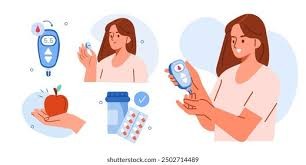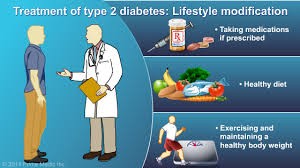Monotherapy of Type 2 Diabetes: Managing Blood Sugar with a Single Medication


Understanding Monotherapy for Type 2 Diabetes
Question: What does monotherapy mean for people living with type 2 diabetes?
Answer: Monotherapy means treating type 2 diabetes with just one medicine.
This method is often used when the condition is in its early stages and blood sugar can be controlled without combining several drugs. The goal is to lower sugar levels while keeping treatment as simple as possible.
- Involves taking only one medication instead of a combination.
- Often recommended for newly diagnosed patients.
- Works best when combined with healthy eating and regular activity.
- Aims to reduce the risk of long-term complications.
Monotherapy is a straightforward first step that can help control type 2 diabetes while avoiding the complexity of multiple medicines.
Why Doctors Often Start with Monotherapy
Question: Why is monotherapy often the first choice for treatment?
Answer: It allows doctors to see how well one medicine works before adding others.
This approach reduces the risk of side effects and helps patients adjust to treatment more easily.
- Provides a clear view of how the medicine affects sugar levels.
- Allows simple adjustments if changes are needed.
- Lowers the risk of medicine interactions.
- Helps patients stay committed to their plan.
Starting with one medicine is a safe way to understand the body’s needs and make treatment less overwhelming for the patient.
Medicines Commonly Used in Monotherapy
Question: Which types of medicines are used in monotherapy for type 2 diabetes?
Answer: The most common medicines work by helping the body use its own insulin better or by reducing sugar production in the liver.
- Medicines that help the body’s use insulin more effectively.
- Medicines that help control sugar levels after eating.
- Medicines that slow down sugar absorption from food.
- Choice depends on overall health, weight, and sugar levels.
There is no single medicine for everyone. The best choice is made after considering each patient’s unique health situation.
Benefits of Starting with a Single Medication
Question: What are the advantages of monotherapy for patients?
Answer: Monotherapy is often easier to manage and less stressful for patients while still being effective in controlling sugar levels.
- Only one dose or pill to remember.
- Lower chance of medicine-related problems.
- Easier to notice if side effects occur.
- Often more affordable than multiple medicines.
Monotherapy keeps treatment simple, which helps patients follow their plan consistently and achieve better results.
When Monotherapy May Not Be Enough
Question: Are there situations where monotherapy does not work?
Answer: Yes. If the condition becomes more severe or blood sugar is very high, more than one medicine may be necessary.
- Monotherapy may lose effectiveness over time.
- Some patients need extra help to reach safe sugar levels.
- Advanced diabetes often needs combination treatment.
- Lifestyle changes remain important no matter the stage.
While monotherapy works well in the early stages, regular check-ups are important to know when it is time to add more support.
Supporting Patients with the Right Medicine
Some medicines help by making the body more sensitive to insulin, allowing it to use sugar more effectively without forcing the pancreas to work harder. This can help maintain steady sugar levels throughout the day.
- Improves the body’s ability to process sugar.
- Often suitable for patients with excess body weight.
- Taken daily without complex schedules.
- Can be used for long-term management.
Another option is medicine that helps prevent sudden rises in sugar after meals by slowing sugar absorption in the stomach and intestines.
- Reduces sharp sugar spikes after eating.
- Works best when combined with healthy food choices.
- Suitable for long-term use if tolerated well.
- Helps keep energy levels steady.
Medicines chosen for monotherapy work in different ways, but the right choice depends on the patient’s needs and lifestyle.
Using Actos (Pioglitazone) to Support Monotherapy
One medicine often used in monotherapy for type 2 diabetes is Actos (Pioglitazone). It works by making the body’s cells more sensitive to insulin, which allows sugar to move from the blood into the cells more easily. Over time, this can help reduce the risk of damage to organs caused by high sugar levels.
- Helps control blood sugar throughout the day.
- Can improve the body’s natural use of insulin.
- May also benefit cholesterol levels.
- Taken once daily for convenience.
Additional Benefits of Actos
Actos can also help reduce sugar fluctuations between meals, supporting a more stable energy level. Some patients may notice a gradual improvement in overall well-being as blood sugar becomes more balanced. In certain cases, Actos may also support heart health by improving blood fat levels. However, regular follow-up with a healthcare professional is important to ensure the medicine remains effective and well tolerated.
- May lower the risk of large blood sugar swings.
- Can be used as a long-term treatment option.
- Often combined with healthy eating and exercise for best results.
- Requires regular monitoring for safe use.
With the right medicine, such as Actos, and healthy daily habits, monotherapy can be a simple and effective way to manage type 2 diabetes for many years.
Drug Description Sources: American Diabetes Association, U.S. National Library of Medicine, Drugs.com, WebMD, Mayo Clinic, RxList.
Reviewed and Referenced By:
- Dr. Emily Carter, MD
Endocrinologist specializing in diabetes management. Frequently cited on the American Diabetes Association and Mayo Clinic websites for reviewing therapeutic guidance on type 2 diabetes treatment and medication use.
- Prof. Michael Andrews, PhD
Clinical pharmacologist with expertise in how diabetes medicines affect the body. Referenced on MedlinePlus and Drugs.com for insights on medication effects and safety.
- Sarah Johnson, RN
Certified diabetes educator focused on patient care and daily management of blood sugar. Frequently contributes to WebMD and RxList articles regarding practical guidance and safe medication use for patients.
Article Post: Editorial Team of RXShop.md
(Updated at Aug 15 / 2025)

